Ninth Session of BIREME’s Advisory Committee occurs online on December 17
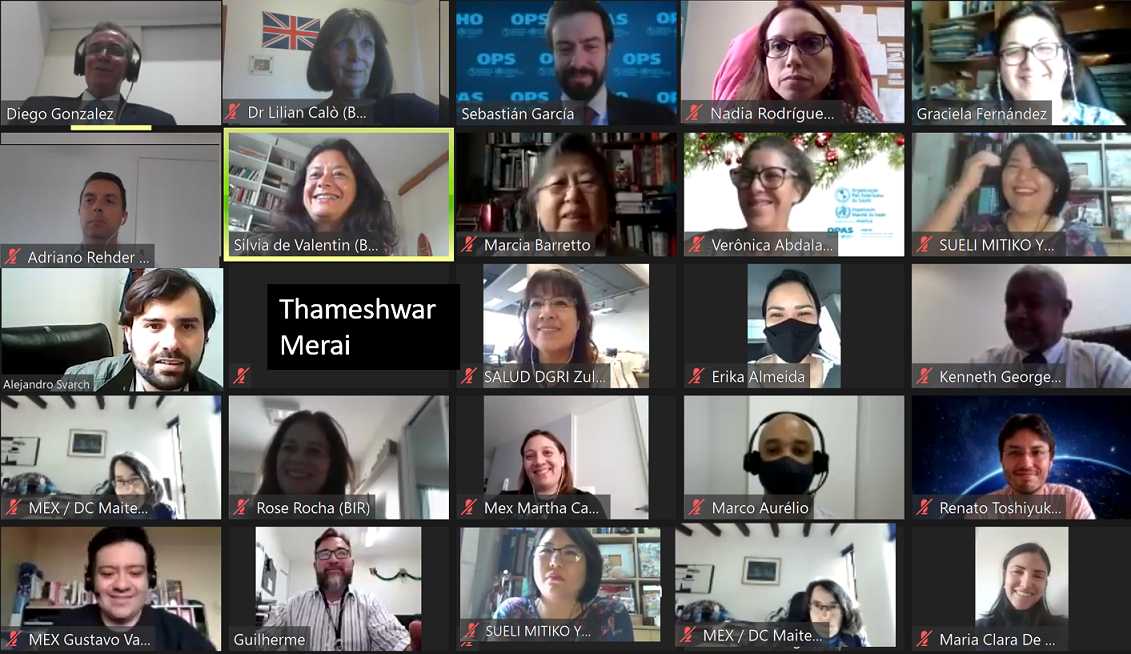

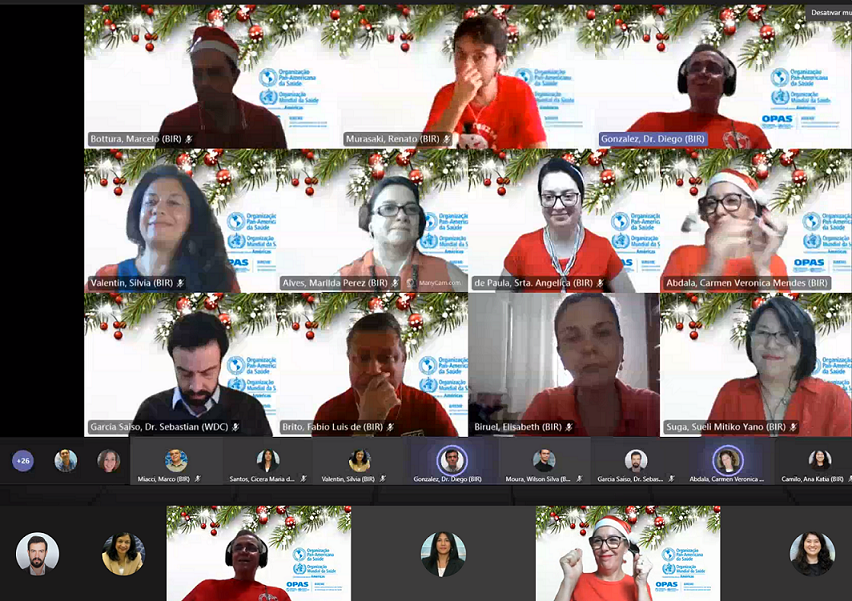
On December 18, 2020, BIREME held its traditional year-end meeting to recognize the main results achieved during the year 2020. The COVID-19 pandemic and social isolation determined that the meeting should take place online, which has not diminished, however, the enthusiasm of the employees and the number of results obtained during the year, in which everyone was teleworking. EIH Director Sebastián Garcia expressed his satisfaction in attending virtually this meeting and witnessing the integration among BIREME collaborators, which he attributes as an important part of the excellent results obtained.
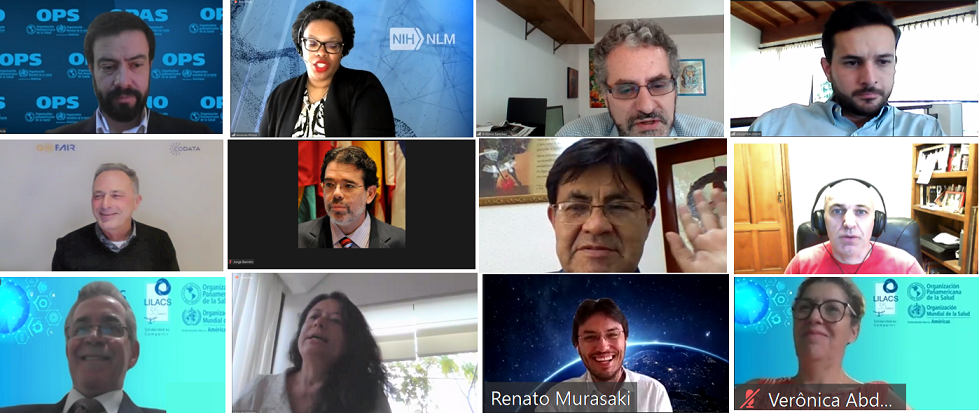
The VI Session of the Scientific Committee (SC) of BIREME was held virtually on December 4, with two specific objectives: to position members on the current stage of implementation of the recommendations made by members of previous sessions and to generate an effective exchange with members of the SC to obtain recommendations to improve the visibility and quality of BIREME’s products and services. SC members were unanimous in recognizing the diversity and scope of the products and services developed by the Center and made a series of recommendations. A report of the session will be sent for the Committee’s final knowledge and considerations.
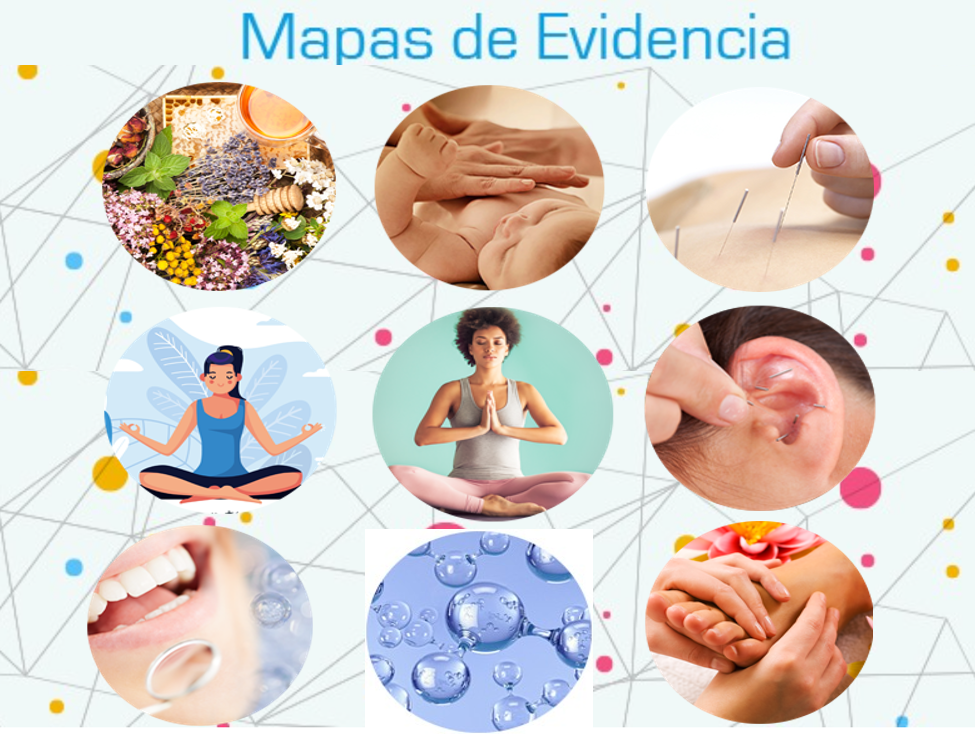
The Brazilian Academic Consortium for Integrative Health (CABSIn) released Evidence Maps on the clinical effectiveness for nine Integrative and Complementary Health Practices (PICS), which were officially launched on November 5 at an online event promoted by the PAHO Office in Brazil and BIREME.
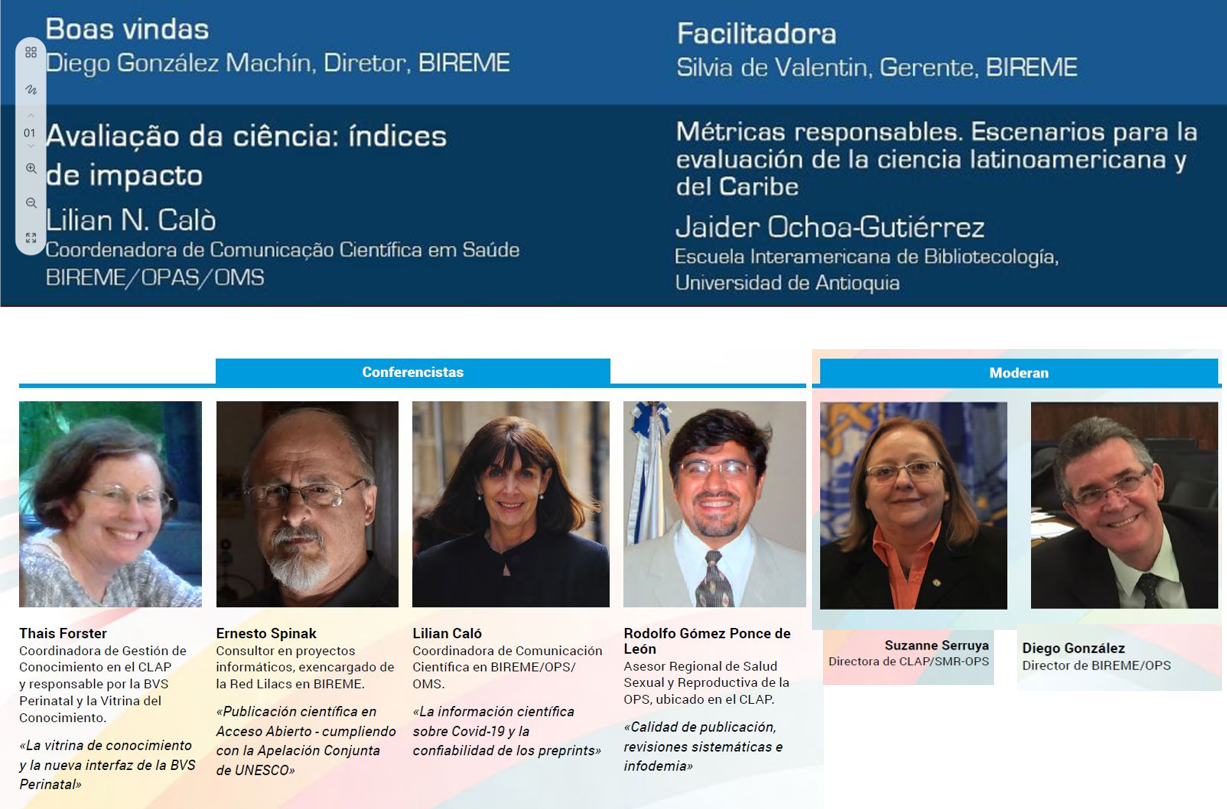
Two series of webinars, one organized by BIREME, whose target audience is the networks of the Virtual Health Library (VHL) and the Libraries of the Unified Health System (BiblioSUS), and another, organized within the framework of the celebration of the fiftieth anniversary of the Latin American Center of Perinatology, Women and Reproductive Health (CLAP/WR), aimed at disseminating scholarly communication topics to audiences other than those who normally participate in workshops and courses. The more the public is familiar with the processes of publishing and disseminating research results, the greater their power to understand and evaluate the information they receive through the media, which increasingly cites scientific sources.
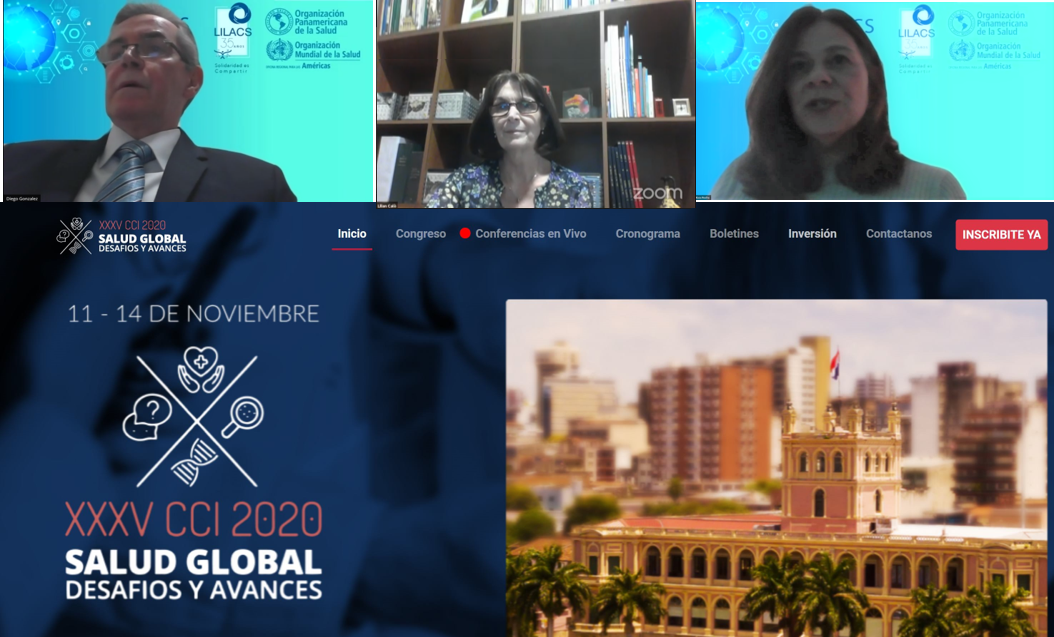
The Latin American Federation of Medical Students’ Societies (FELSOCEM, in its Spanish acronym) held its 35th International Scientific Congress on November 11-14. As with what had happened in previous editions, BIREME had an outstanding participation in the event, with lectures by Diego González, Director of BIREME and Lilian Calò, Coordinator of Scholarly Communication, in addition to a short course on Searching for scientific evidence in health Information sources provided by Rosemeire Pinto, Supervisor of Training and User’s Service.
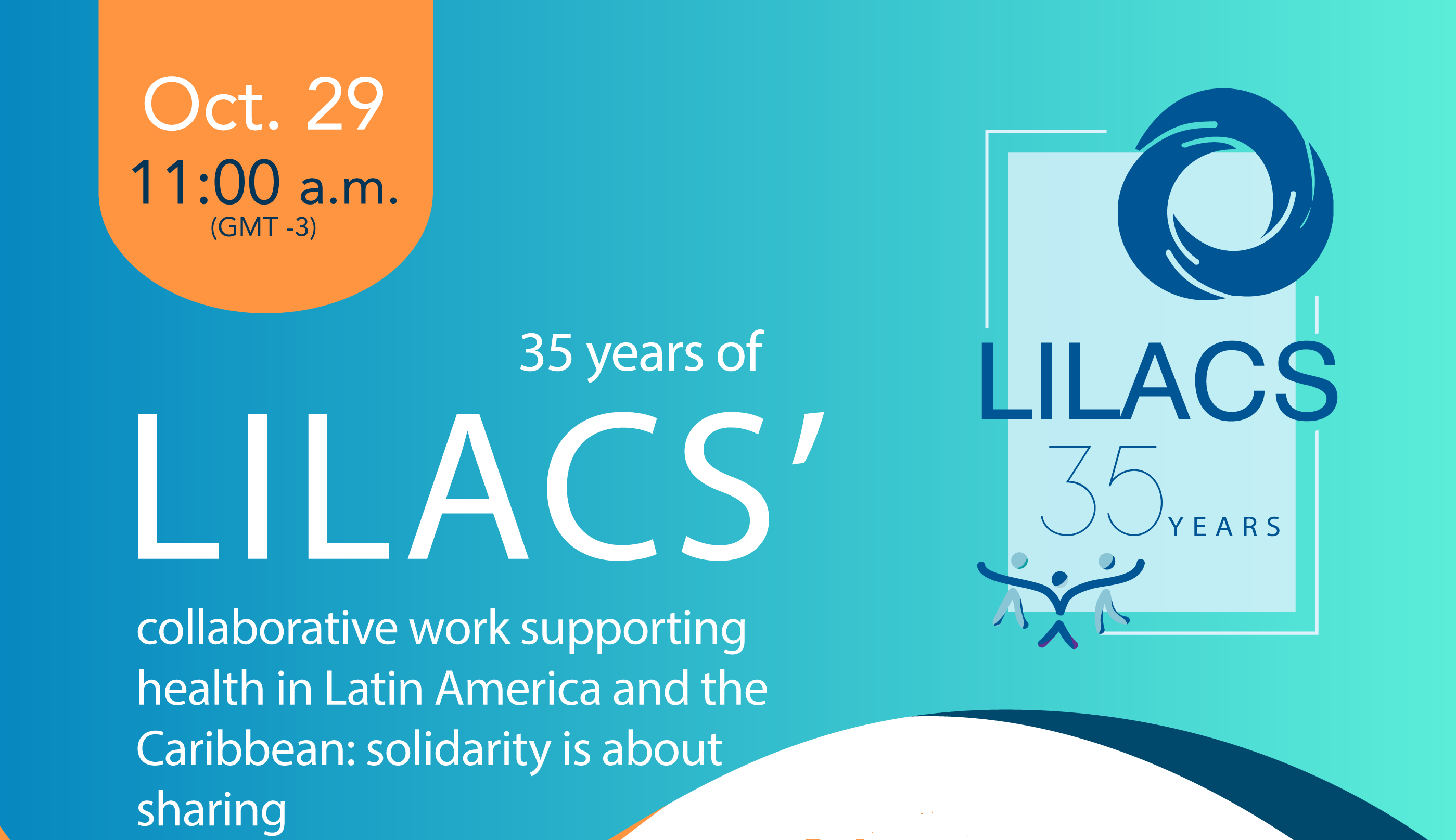
The 35th anniversary of LILACS was marked by an online session that took place on 29 October accompanied by more than 400 connections, with the participation of with the participation of Jarbas Barbosa, PAHO/WHO Assistant Director, Sebastian García, Director of the Department of Evidence and Intelligence for Action in Health, and BIREME collaborators, who made presentations on the history, present and future of LILACS, under the moderation of the Director of BIREME, Diego González.
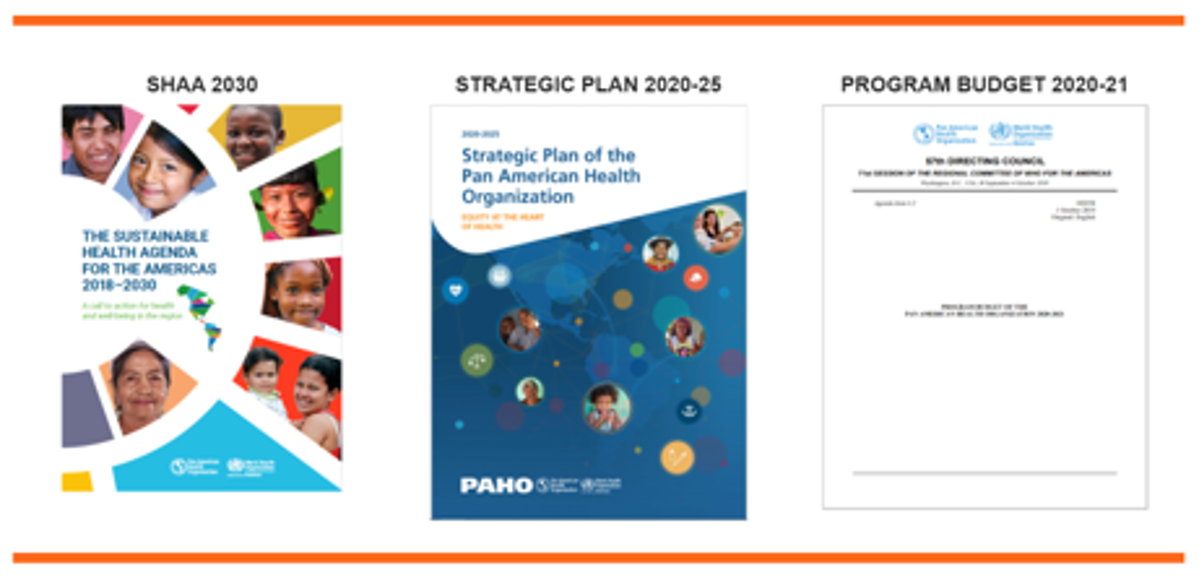
Within the framework of the analysis of its 2020-2021 Work Plan (BWP 20-21) and even though in emergency teleworking during the global pandemic of COVID-19 since mid-March/20, BIREME/PAHO/WHO achieved important advances. Ten of the main results achieved in the first semester of 2020 are shared here, especially scientific information on SARS-CoV-2 and COVID-19.
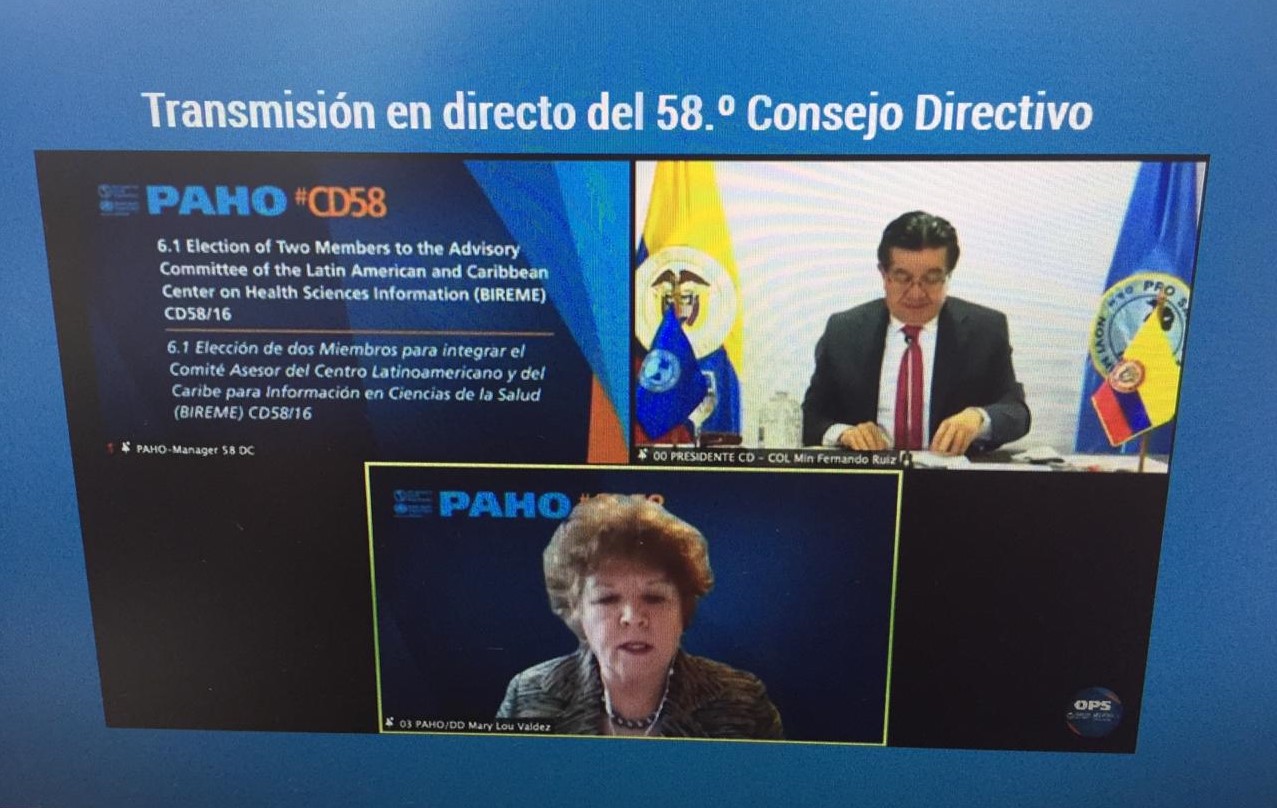
The 58th Directing Council of the Pan American Health Organization (PAHO) took place virtually in 2020, where Health Ministers and high-country officials discussed the region’s response to the COVID -19 pandemic, as well as other challenges. The Latin American and Caribbean Center for Health Sciences Information (BIREME), PAHO / WHO Regional Scientific Information Center, was on the agenda with the replacement of two member countries of its Advisory Committee.
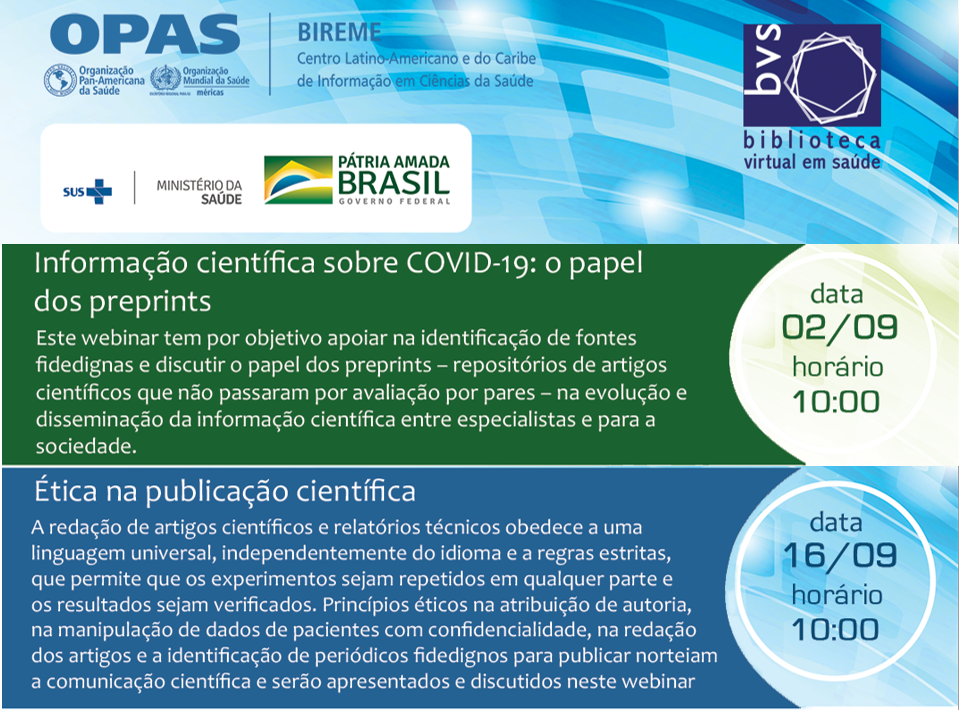
The series of six webinars coordinated by PAHO / WHO through PAHO Brazil, Ministry of Health and BIREME aims at strengthening health information networks, articulate and promote cooperation and participation of the VHL and BiblioSUS Networks. The last two webinars dealt with scholarly communication topics in the context of the VHL information sources: “Scientific information on COVID-19: the role of preprints” and “Ethics in scientific publishing”.